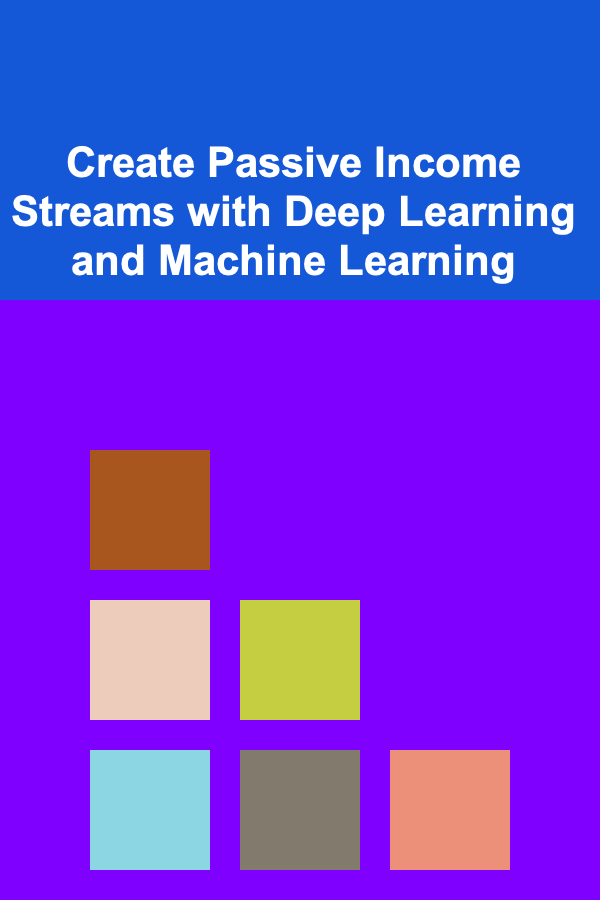
How to Learn About Quantum Computing Benchmarking
ebook include PDF & Audio bundle (Micro Guide)
$12.99$11.99
Limited Time Offer! Order within the next:

Quantum computing is one of the most exciting frontiers in the field of technology. As it continues to evolve, quantum computing promises to revolutionize industries, from cryptography to artificial intelligence and optimization problems. However, the ability to benchmark quantum computers, that is, to evaluate their performance, is crucial in understanding how close we are to practical, large-scale quantum computing.
In this article, we will delve deep into quantum computing benchmarking, discussing what it is, why it matters, and how you can learn about it. We will explore the importance of benchmarking quantum processors, the key metrics and methods used in the field, and how various benchmarking techniques contribute to the overall development of quantum computers.
Understanding Quantum Computing
What is Quantum Computing?
Quantum computing harnesses the principles of quantum mechanics to perform calculations that would be impossible for classical computers to handle efficiently. Classical computers process information in bits, which can be either 0 or 1. Quantum computers, on the other hand, use quantum bits or qubits, which can exist in multiple states simultaneously due to superposition. This allows quantum computers to process vast amounts of data in parallel, significantly speeding up computations for certain types of problems.
One of the most striking features of quantum computers is entanglement, a phenomenon where the state of one qubit can depend on the state of another, regardless of the distance between them. This enables quantum computers to perform complex operations that classical computers cannot.
Despite the promising potential, quantum computers are still in the early stages of development, and there is a significant gap between theoretical potential and practical application. To bridge this gap, understanding how well quantum processors perform and ensuring that they meet specific benchmarks is crucial.
The Need for Quantum Computing Benchmarking
Benchmarking is essential for any technology to evaluate its performance, identify areas of improvement, and ensure it meets the necessary standards. Quantum computers are no exception. Benchmarking helps researchers and developers understand the capabilities and limitations of quantum processors, ensuring that these systems can be effectively scaled and used for practical applications.
Without proper benchmarking, it would be difficult to assess whether a quantum computer is making progress or falling behind. With multiple companies and research institutions racing to build the most powerful quantum computers, establishing a set of benchmarks allows for fair comparisons between different systems, ultimately advancing the field.
Key Metrics in Quantum Computing Benchmarking
There are several key metrics used to evaluate quantum computers. These metrics help measure different aspects of quantum performance, from the number of qubits to error rates and fidelity of quantum gates.
1. Qubit Count
The number of qubits in a quantum processor is one of the most basic yet essential metrics. Generally, more qubits enable a quantum computer to process more complex problems. However, simply increasing the number of qubits does not guarantee better performance. A quantum computer with a large number of low-quality qubits may be less effective than one with fewer, higher-quality qubits.
2. Gate Fidelity
Gate fidelity refers to how accurately a quantum gate, which manipulates qubits, performs its intended operation. In classical computing, gate fidelity is straightforward---digital logic gates are either on or off. In quantum computing, however, gates are represented by quantum operations that can introduce errors due to noise or imperfections in the hardware. High gate fidelity is crucial for ensuring that quantum computations are correct.
3. Decoherence Time (T2)
Quantum computers rely on maintaining coherent superpositions of qubits to perform calculations. However, qubits are highly susceptible to external noise, and this coherence can be easily disturbed, a phenomenon known as decoherence . The decoherence time, often referred to as T2, is the amount of time a quantum system can maintain its quantum state before losing information. A longer decoherence time is generally better for quantum computing performance, as it allows for more operations to be performed before the system loses its quantum coherence.
4. Quantum Volume
Quantum volume is a more holistic metric that combines several aspects of quantum computing performance, including qubit count, gate fidelity, and decoherence time. It attempts to provide an overall measure of a quantum computer's capabilities. Quantum volume is especially useful because it accounts for how well a quantum processor performs as a whole, rather than focusing on individual metrics.
5. Error Rate
Quantum computers are highly susceptible to errors, and error correction is one of the biggest challenges in the field. The error rate of quantum gates is a critical metric for benchmarking quantum processors. Lower error rates indicate that a quantum computer can perform more accurate calculations, which is essential for practical applications.
6. Circuit Depth and Gate Count
The complexity of a quantum algorithm can often be measured by its circuit depth (the number of layers of quantum gates in a quantum circuit) and the total gate count (the number of individual gates used). Shorter circuits and fewer gates generally imply that a quantum computer is more efficient at executing algorithms. Benchmarking can help determine how long and how complex the quantum circuits can be before they become unreliable due to noise or other factors.
7. Scalability
Scalability is another crucial metric in quantum benchmarking. A quantum computer needs to scale to handle larger, more complex problems. Scalability encompasses not only the number of qubits but also the ability to maintain low error rates and high gate fidelity as the system grows. Benchmarking scalable systems helps determine if the quantum computer can grow to handle real-world, practical problems.
Quantum Computing Benchmarking Methods
Various methods are employed to benchmark quantum computers. Some of the most popular techniques are discussed below.
1. Randomized Benchmarking
Randomized benchmarking is one of the most widely used methods for assessing gate fidelity. In randomized benchmarking, a sequence of random quantum gates is applied to a quantum system, and the output is measured. By repeating the process multiple times, researchers can estimate the average error rate of the quantum gates. This method is effective because it is not sensitive to the initial state of the qubits, making it easier to implement than other error rate estimation methods.
2. Cross-Entropy Benchmarking (CEB)
Cross-entropy benchmarking is another technique used to measure quantum performance, particularly for assessing quantum state fidelity. In this method, a quantum computer is tasked with preparing a specific quantum state, and the output is measured. The cross-entropy between the expected and observed outcomes provides a measure of how well the quantum computer is performing. This method is particularly useful for evaluating the performance of quantum computers in executing complex algorithms.
3. Quantum Circuit Learning (QCL)
Quantum circuit learning is a relatively new approach to benchmarking that uses machine learning algorithms to optimize and learn quantum circuits. This method seeks to find the most efficient quantum circuits for a given problem, providing insight into the optimal performance of a quantum system. By training machine learning models on quantum circuits, researchers can gain a better understanding of how quantum systems perform and how they can be improved.
4. Qudit Benchmarking
While most quantum benchmarking focuses on qubits (two-level quantum systems), qudits are higher-dimensional quantum systems that can represent more states than qubits. Qudit benchmarking techniques allow for the evaluation of quantum systems that use qudits, providing a broader range of benchmarking tools for quantum systems with more than two states per unit of information.
5. Quantum Volume Benchmarking
Quantum volume benchmarking combines various aspects of quantum performance, including qubit count, gate fidelity, and decoherence time, to provide a holistic view of a quantum system's capabilities. A higher quantum volume indicates a quantum computer's ability to perform more complex and longer computations. This method has gained popularity in recent years as it helps assess the overall effectiveness of quantum processors.
How to Learn About Quantum Computing Benchmarking
Learning about quantum computing benchmarking requires a blend of foundational knowledge in quantum mechanics, quantum computing, and benchmarking techniques. Here are some steps you can follow to understand and learn about this area.
1. Study the Basics of Quantum Computing
To understand benchmarking, you first need to grasp the fundamentals of quantum computing. This includes learning about qubits, quantum gates, superposition, entanglement, and quantum algorithms. There are numerous online resources, courses, and textbooks available for beginners. Some excellent resources include:
- "Quantum Computation and Quantum Information" by Michael Nielsen and Isaac Chuang
- Online platforms like Coursera, edX, and MIT OpenCourseWare
- YouTube channels and blogs dedicated to explaining quantum concepts
2. Get Familiar with Quantum Programming Languages
To understand how quantum computers are programmed and how benchmarks are applied, you should familiarize yourself with quantum programming languages. Popular quantum programming languages include:
- Qiskit (IBM's open-source quantum computing framework)
- Cirq (Google's quantum programming framework)
- Quipper (A high-level quantum programming language)
By working with these languages, you can experiment with quantum circuits, run algorithms, and apply benchmarking techniques directly on quantum processors or simulators.
3. Follow Research Papers and Journals
Quantum computing benchmarking is a rapidly evolving field, and keeping up with the latest research is crucial. Reading research papers, attending conferences, and following journals such as:
- Nature Quantum Information
- Quantum Information and Computation
- The Journal of Quantum Computing
This will help you stay updated on new developments in benchmarking techniques and performance metrics.
4. Experiment with Quantum Hardware
Many quantum computing companies and institutions provide access to real quantum hardware through cloud platforms. Some notable ones include:
- IBM Quantum Experience
- Rigetti Computing's Forest platform
- Google's Quantum AI Lab
By experimenting with real quantum hardware, you can apply benchmarking techniques and gain hands-on experience in understanding quantum processor performance.
5. Join Quantum Computing Communities
Becoming part of the quantum computing community is an excellent way to learn. Engage in online forums, attend webinars, and participate in workshops. Websites like:
- Quantum Computing Stack Exchange
- Reddit's r/QuantumComputing
- Quantum Computing forums on Slack or Discord
These communities are excellent for discussing ideas, asking questions, and staying informed about developments in the field.
Conclusion
Quantum computing is still in its infancy, and the ability to benchmark quantum processors is a crucial step in realizing the full potential of this revolutionary technology. By understanding the key metrics and methods used to evaluate quantum computers, you can contribute to the advancement of the field. Whether you're a student, researcher, or enthusiast, learning about quantum computing benchmarking provides you with the tools to assess, compare, and ultimately help push the boundaries of quantum technology.

Create Passive Income Streams with Deep Learning and Machine Learning
Read More
Developing Deep Learning Solutions That Bring in Passive Income
Read More
How to Organize a Small Home Gym Effectively
Read More
How to Organize Your Grocery Shopping Checklist by Store Sections
Read More
Top 10 DIY Wedding Ceremony and Reception Decorations You Can Make Yourself
Read More
Why You Should Keep a Home Inventory for Insurance Purposes
Read MoreOther Products

Create Passive Income Streams with Deep Learning and Machine Learning
Read More
Developing Deep Learning Solutions That Bring in Passive Income
Read More
How to Organize a Small Home Gym Effectively
Read More
How to Organize Your Grocery Shopping Checklist by Store Sections
Read More
Top 10 DIY Wedding Ceremony and Reception Decorations You Can Make Yourself
Read More